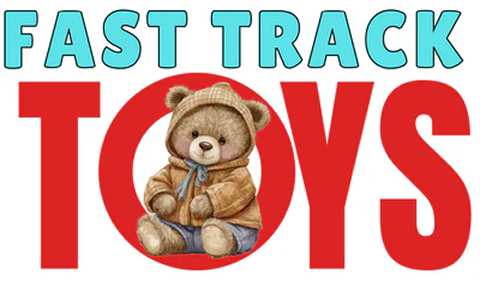Stuffed animals have been children’s favorite companions for generations. Even with the countless types of toys available today, plush toys remain special. Why do children form such strong bonds with these cuddly friends? The secret lies in their ability to comfort, teach, and support emotional growth. This article explores why children love stuffed animals and how these toys help them grow emotionally, socially, and mentally.
Why Kids Are Drawn to Plush Toys?
Plush toys are not just toys; they are sources of comfort and love. Their soft texture and friendly designs make them feel safe and familiar to children. These qualities create a bond that is hard to replace. Whether it’s a teddy bear or a stuffed bunny, these toys offer emotional support. Children often rely on them during challenging times, like starting school or sleeping alone. The warmth and security plush toys provide help children feel less anxious and more confident.
The Comfort and Security of Stuffed Animals
Stuffed animals are like emotional anchors for children. They provide comfort in moments of fear, sadness, or change. For example, cuddling a favorite stuffed animal can help a child feel calmer when a parent is away. These toys also help kids learn to comfort themselves, which is an important life skill. Over time, this sense of security allows children to become more independent and resilient.
The Role of Stuffed Animals in Nurturing Empathy
One of the most beautiful things about plush toys is how they teach empathy. Children often treat their stuffed animals like real friends. They talk to them, feed them, and pretend to take care of them. Through these actions, children practice compassion and understanding. These moments of pretend care help kids learn how to connect with others. The skills they build with their toys will later help them form real relationships.
Stuffed Animals and Cognitive Development
Playing with stuffed animals also helps children develop their imagination and thinking skills. When a child pretends their teddy bear is at a tea party or that their stuffed elephant is exploring the jungle, they’re creating stories and solving problems. This kind of imaginative play strengthens their ability to think creatively and adapt to new situations.
The Unique Personalities of Plush Toys
To a child, a stuffed animal isn’t just an object—it’s a best friend with its own personality. Over time, children give their toys unique traits and special roles in their lives. For example, a teddy bear might become a brave protector, while a plush bunny might be a caring nurse. These personal connections make stuffed animals irreplaceable. No copy of a favorite toy can ever replace the real one because of the shared memories.
Social Skill Development Through Plush Toys
Stuffed animals also help children develop social skills. Kids often mimic real-life interactions when playing with their toys. They may host tea parties, take their plush toys on adventures, or even have conversations with them. These pretend activities teach children important social behaviors, like sharing, taking turns, and expressing feelings. As they grow, these skills help them interact more confidently with others.
How Plush Toys Improve Language Development
Pretend play with plush toys also boosts language skills. When children talk to their toys or create stories, they’re practicing communication. They learn new words and how to form sentences. Even babies benefit from these interactions. If a parent talks “through” a toy, a baby may babble back, learning the basics of conversation. These moments of play help children become better communicators over time.
Teaching Emotional Resilience with Stuffed Animals
Stuffed animals are also valuable during times of change. They help children process feelings and adapt to new situations. For example, a child who feels nervous about moving to a new home might find comfort in their favorite toy. Plush toys provide a sense of consistency in an uncertain world. By turning to their stuffed animals, children learn to manage emotions like sadness or fear, building emotional resilience for the future.
The Lifelong Impact of Stuffed Animals
The lessons children learn from stuffed animals don’t stop in childhood. Many adults still treasure their childhood plush toys as symbols of comfort and nostalgia. The empathy, creativity, and emotional strength developed through these toys often carry over into adult life. These skills help in forming meaningful relationships and solving problems. Stuffed animals leave a lasting impact, shaping children into confident, caring individuals.
Conclusion
Stuffed animals are so much more than toys. They are trusted friends, sources of comfort, and tools for learning and growth. From helping children feel safe to teaching empathy and boosting creativity, plush toys play a huge role in child development. Encouraging children to play with these toys gives them not only a companion but also valuable skills for life.
If your child doesn’t yet have a favorite plush toy, now might be the perfect time to introduce one. It could become a lifelong friend and a cherished part of their growth journey.


